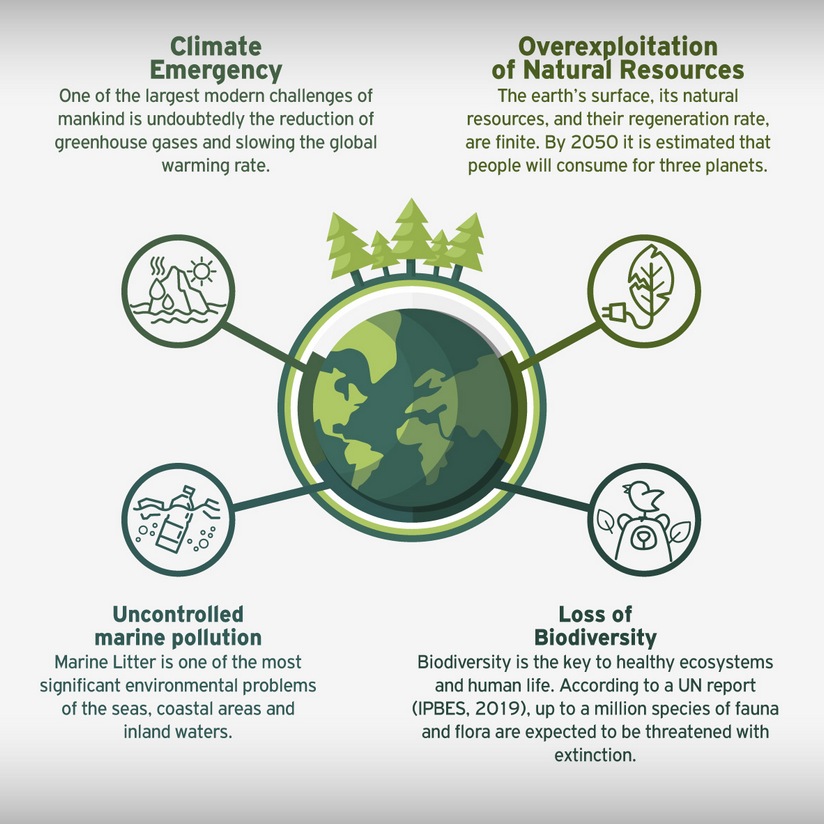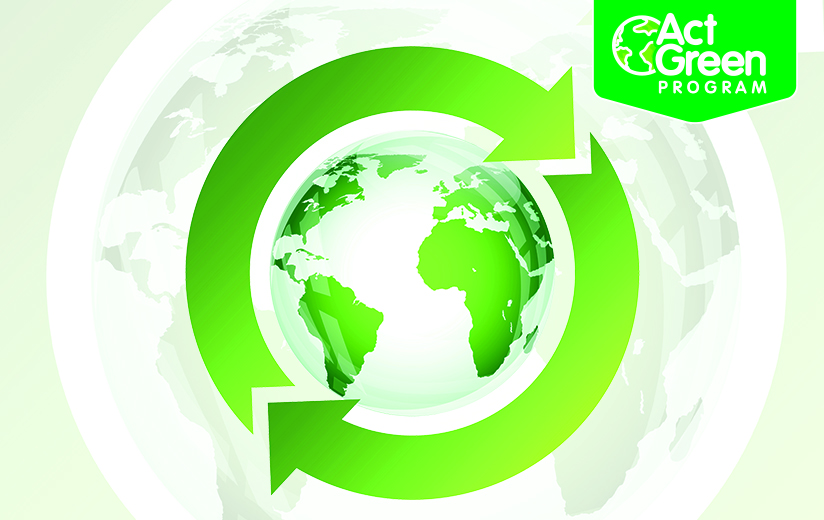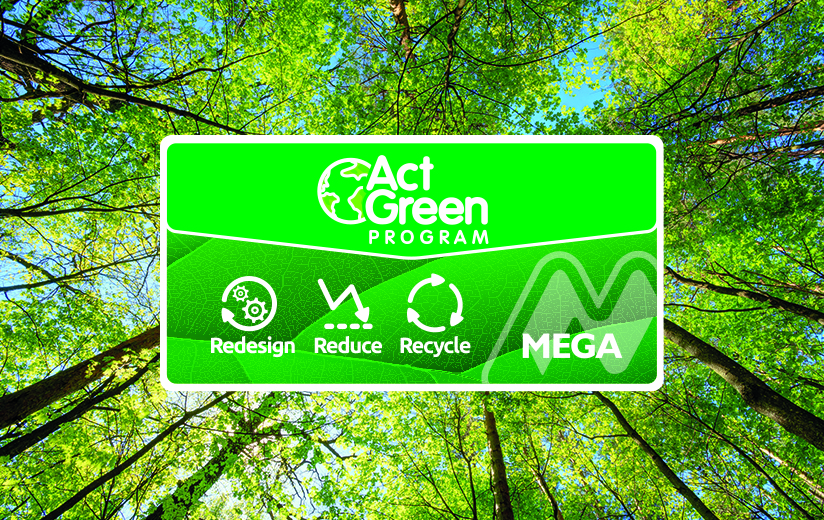The planet’s ecosystems are becoming more and more fragile, while new, unprecedented challenges, are emerging every day.
• Climate emergency: The IPCC report “Special Report Global Warming of 1.5°C: (2018)”, describes in detail the effects of a 1.5°C rise in global temperature above pre-industrial levels, while indicating that humanity has only 12 years to reduce total net anthropogenic emissions of CO2 by approximately 45% compared to 2005 levels, reaching “net zero” circa 2050.
• Waste of natural resources: Global consumption of materials such as biomass, fossil fuels, metals, and minerals, is expected to double within the next 40 years, while the annual waste production is projected to increase by 70% until 2050. In addition, mining and processing of resources creates 50% of total greenhouse gas emissions and more than 90% of biodiversity loss and water resources pressure.
• Biodiversity loss: Some researchers estimate that we are already going through the sixth mass extinction of the dominant life forms in the history of the earth. Previous mass extinctions have wiped out between 60% and 95% of all species. Ecosystems need millions of years to bring life back to previous levels of diversity.
• Uncontrolled marine pollution: Marine litter is a global challenge, with a particularly high presence in the Mediterranean Sea. It is attributed to the improper disposal of fishery and consumer products, as well as to the low efficiency of the existing waste management infrastructure, recycling, and source sorting systems. At the same time, uncontrolled fishing, aquaculture, coastal landfills, urban and industrial discharges, tourism, shipping, further increase the risk for wildlife and the degradation of ecosystem services. Plastics as materials are used daily in our lives, but they should be used responsibly by the citizens, recycled as much as possible and kept away from our seas.








